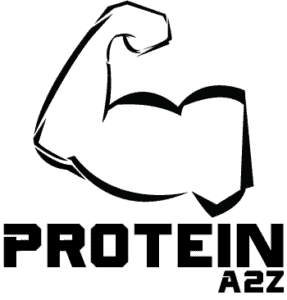Regardless of your gender, body type and experience, whey protein powder is the best protein for muscle gain. Unless you are lactose intolerant or vegan, whey protein powder does not pose any negative side effects when used in moderation and yields amazing results for women in terms of muscle gain and weight loss.
Read about the best lactose free protein powder.
Table of Contents
Whey protein powder is the best for women’s muscle growth
Whey protein powder contains the full quantity of the nine essential amino acids for muscle growth that your body cannot produce on its own. This is the reason why whey protein powder is also referred to as a complete protein source. It’s great for encouraging muscle growth in women.
Whey protein powder has an anabolic effect when consumed before or after working out, as well as in the morning. It is more quickly digested than other forms of protein powder like pea protein, casein protein or egg protein.
There are three types of whey protein powders – concentrates, isolates and hydrolysates. The concentrate is the most commonly used and the cheapest form. It contains more fats and carbs than the other two options which are more refined.
Women don’t want to gain great muscle, yet gain fat at the same time. Whey protein powder comes to the rescue here, as it diminishes the appetite as well as promotes muscle growth. That means you won’t be so hungry to consume sugars or other unhealthy snacks if you drink protein shakes.
What is the alternative to whey protein for lactose intolerant or vegan women?
The best substitutes to whey protein powders are pea, soy, hemp, and brown rice protein powders. They are all vegan and lactose-free solutions that provide your much-needed daily dose of protein.
Pea protein is a bit slower to digest than whey, which is not necessarily a disadvantage. It contains almost three times the amount of arginine, which helps your kidneys get rid of the waste in your body. Moreover, it has a leading immunological function and is proven to play a part in wound healing and artery relaxing.
Soy protein is another alternative to think of. It is a complete protein, which means it contains all nine essential amino acids, much like whey protein. Moreover, soy contains calcium, iron, magnesium and selenium. One thing for women to consider with soy though, is that it can affect hormone levels.
Hemp protein is another choice and a good source of Omega-3 fatty acids.
FAQ
Does whey protein powder have any side effects?
Excessive use of whey protein powder may cause bowel movements and instability. Regardless of the protein source you pick, going beyond your recommended dose of protein consumption might cause headaches, as well as fatigue, skin irritation, and kidney problems. It is recommended to consume between 20% and 30% of your calories from protein per day.
Do you really need protein powder in order to build muscle?
Depending on your goals, your protein target for the day might vary. For example, maintaining muscle requires less protein than building muscle. Protein powder is a good addition to your diet if you are not consistently reaching your daily target. Otherwise, if you are able to get your protein for the day through meals, it is preferred to eat regular food rather than drink protein shakes.
